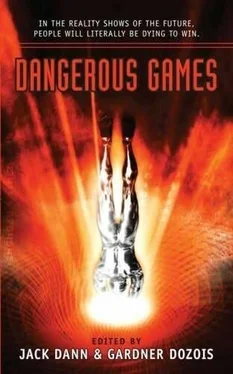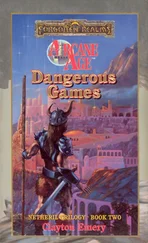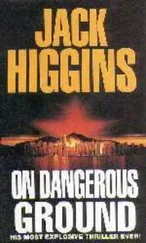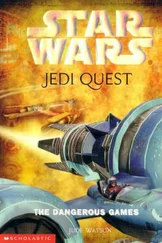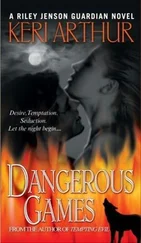Jack Dann - Dangerous Games
Здесь есть возможность читать онлайн «Jack Dann - Dangerous Games» весь текст электронной книги совершенно бесплатно (целиком полную версию без сокращений). В некоторых случаях можно слушать аудио, скачать через торрент в формате fb2 и присутствует краткое содержание. Жанр: Триллер, на английском языке. Описание произведения, (предисловие) а так же отзывы посетителей доступны на портале библиотеки ЛибКат.
- Название:Dangerous Games
- Автор:
- Жанр:
- Год:неизвестен
- ISBN:нет данных
- Рейтинг книги:3 / 5. Голосов: 1
-
Избранное:Добавить в избранное
- Отзывы:
-
Ваша оценка:
- 60
- 1
- 2
- 3
- 4
- 5
Dangerous Games: краткое содержание, описание и аннотация
Предлагаем к чтению аннотацию, описание, краткое содержание или предисловие (зависит от того, что написал сам автор книги «Dangerous Games»). Если вы не нашли необходимую информацию о книге — напишите в комментариях, мы постараемся отыскать её.
Extreme sports. Extreme future. Extreme collection.
Science fiction's most expert dreamers envision the computerized, high-risk games of the future in this winning collection. Features Robert Sheckley, Cory Doctorow, Kate Wilhelm, Alastair Reynolds, Vernor Vinge, Jonathan Letham, Gwyneth Jones, William Browning Spencer, Allen Steele, Terry Dowling, and Jason Stoddard.
Dangerous Games — читать онлайн бесплатно полную книгу (весь текст) целиком
Ниже представлен текст книги, разбитый по страницам. Система сохранения места последней прочитанной страницы, позволяет с удобством читать онлайн бесплатно книгу «Dangerous Games», без необходимости каждый раз заново искать на чём Вы остановились. Поставьте закладку, и сможете в любой момент перейти на страницу, на которой закончили чтение.
Интервал:
Закладка:
I watched a few initial heats before my turn.
Most of the animals were sufficiently far from each other-or huddled in herds-that during each movement burst they did little except shuffle around or move slightly more in one direction than another. But the animals that were near each other exhibited more interesting behavior. Prey creatures-small, flat-bodied grazers or midlevel predators-would try and get away from the higher-level predators, which in turn would advance toward the grazers and subordinate predators. But then they’d come to a stop, perfectly motionless, their locations revealed only by the cams, since it was completely dark in the Arena.
Waiting.
It was harder than it looked-the dynamics of the ecosystem far subtler than I’d expected. Interfering at any level could have wildly unexpected consequences.
Risa would have loved it.
Soon it was my turn. I took my console after nodding briefly at my opponent; a rising player of moderate renown, but no real match for myself, even though neither of us had played Stroboscopic before.
We commenced play.
The Arena-initially empty-was populated by Strobelife via robot drones that dashed out from concealed hatches. The Strobelife was in stasis; no light flashes from the dome to trigger the life cycle; as stiff and sculptural as the animal we’d studied in the yacht. My console displayed a schematic overlay of the Arena, with “my” animals designated by marker symbols. The screens showed the same relationships from different angles. Initial placement was pseudo-random; animals placed in lifelike groupings, but with distances between predator and prey, determined by algorithms compiled from real Strobeworld populations.
We were given five minutes to study the grouping and evolve a strategy before the first flash. Thereafter, the flashes would follow at 72-second intervals until the game’s conclusion.
The five minutes slammed past before I’d examined less than a dozen possible opening gambits.
For a few flash cycles nothing much happened; too much distance between potential enemies. But after the fifth cycle some of the animals were within striking range of each other. Little local hot spots of carnage began to ensue; animals being dismembered or eaten in episodic bursts.
We began to influence the game. After each movement burst-during the minute or so of near-immobility-we were able to selectively reposition or withdraw our own or our opponent’s animals from the Arena, according to a complex shifting value scheme. The immobile animals would be spirited away, or relocated, by the same robots that had placed them initially. When the next flash came, play would continue seamlessly.
All sorts of unanticipated things could happen.
Wipe out one predator and you might think that the animals it was preying on would thrive, or at least not be decimated so rapidly. But what often happened was that a second rival predator-until then contained in number-would invade the now unoccupied niche and become more successful than the animal that had been wiped out. If that new predator also pursued the prey animals of the other, then they might actually be worse off.
I began to grasp some of Stroboscopic’s latent complexity. Maybe it was going to be a challenge after all.
I played and won four rounds out of five. No point deluding myself: at least two of my victories had been sheer luck, or had evolved from dynamics of the ecology that were just too labyrinthine to guess at. But I was impressed, and for the first time in years, I didn’t feel as if I’d already exhausted every aspect of a game.
I was enjoying myself.
I waited for the other heats to cycle through, my own name only displaced from the top of the leader board when the last player had completed his series.
Zubek had beaten me.
“Bad luck,” he said, in the immediate aftermath, after we’d delivered our sound bites. He slung an arm around my shoulder, matishly. “I’m sorry what I said about you before, Nozomi.”
“Would you be apologizing now if I’d won?”
“But you didn’t, did you? Put up a good fight, I’ll admit. Were you playing to your limit?” Zubek stopped a passing waiter and snatched two drinks from his tray, something fizzy, passing one to me. “Listen, Nozomi. Either way, we won in style and trashed the rest.”
“Good. Can I go now? I’d like to speak to my wife.” And get the hell away from Tycho, I thought.
“Not so fast. I’ve got a proposition. Will you hear me out?”
I LISTENED to what Zubek had to say. Then caught up with Risa a few minutes later and told her what he had outlined.
“You’re not serious,” she said. “He’s playing a game with you, don’t you realize?”
“Isn’t that the point?”
Risa shook her head exasperatedly. “Angela Valdez is dead. She died a good death, doing what she loved. Nothing the two of you can do now can make the slightest difference.”
“Zubek will make the challenge whether I like it or not.”
“But you don’t have to agree.” Her voice was calm but her eyes promised tears. “You know what the rumors said. That the next level was more dangerous than the first.”
“That’ll make it all the more interesting, then.”
But she wasn’t really listening to me, perhaps knowing that I’d already made my mind up.
Zubek and I arranged a press conference an hour later, sharing the same podium, microphones radiating out from our faces like the rifles of a firing squad; stroboscopic flashes of cameras prefiguring the game ahead. We explained our proposition: how we’d agreed between ourselves to another game; one that would be dedicated to the memory of Angela Valdez.
But that we’d be playing Level Two.
Icehammer took the podium during the wild applause and cheering that followed our announcement.
“This is extremely unwise,” he said, still stiffly clad in his mobility frame. “Level Two is hardly tested yet; there are bound to be bugs in the system. It could be exceedingly dangerous.” Then he smiled and a palpable aura of relief swept through the spectators. “On the other hand, my shareholders would never forgive me if I forewent an opportunity for publicity like this.”
The cheers rose to a deafening crescendo.
Shortly afterward I was strapped into the console, with neuro-effectors crowning my skull, ready to light up my pain center. The computer overseeing the game would allocate jolts of pain according to the losses suffered by my population of Strobelife. All in the mind, of course. But that wouldn’t make the pain any less agonizing, and it wouldn’t reduce the chances of my heart simply stopping at the shock of it all.
Zubek leant in and shook my hand.
“For Angela,” I said, and then watched as they strapped Zubek in the adjacent console, applying the neuro-effector.
It was hard. It wasn’t just the pain. The game was made more difficult by deliberately limiting our overview of the Arena. I no longer saw my population in its entirety-the best I could do was hop my point of view from creature to creature, my visual field offering a simulation of the electrical-field environment sensed by each Strobelife animal; a snapshot only updated during Strobetime. When there was no movement, there was no electrical-field generation. Most of the time I was blind.
Most of the time I was screaming.
Yet somehow-when the computer assessed the fitness of the two populations-I was declared the winner over Zubek.
Lying in the couch, my body quivered, saliva water-falling from my slack jaw. A moan filled the air, which it took me long moments to realize was my own attempt at vocalization. And then I saw something odd; something that shouldn’t have happened at all.
Zubek hauled himself from his couch, not even sweating.
Читать дальшеИнтервал:
Закладка:
Похожие книги на «Dangerous Games»
Представляем Вашему вниманию похожие книги на «Dangerous Games» списком для выбора. Мы отобрали схожую по названию и смыслу литературу в надежде предоставить читателям больше вариантов отыскать новые, интересные, ещё непрочитанные произведения.
Обсуждение, отзывы о книге «Dangerous Games» и просто собственные мнения читателей. Оставьте ваши комментарии, напишите, что Вы думаете о произведении, его смысле или главных героях. Укажите что конкретно понравилось, а что нет, и почему Вы так считаете.
